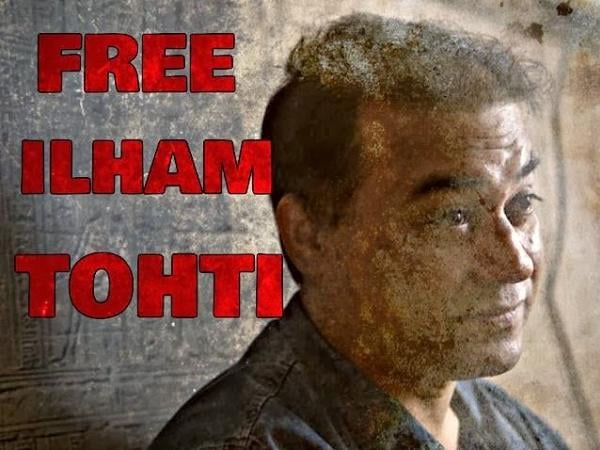Chinese authorities have formally charged outspoken Uighur scholar and human rights activist Ilham Tohti (Uyghur: ئىلھام توختى, Chinese: 伊力哈木土赫提) with inciting separatism. Arrested in Beijing in January, Tohti is currently being held in China’s far western Xinjiang region and has been denied access to a lawyer on the grounds that his case involves “state secrets.” If convicted (almost a certainty in Chinese courts), Tohti faces possible penalties ranging from ten years in prison to the death penalty.
Tohti’s arrest and the charges against him are seen as part of a broader crackdown on dissent in Xinjiang and among the Uighur minority, who complain of severe discrimination and repression at the hands of Chinese authorities. Tohti is considered a moderate critic of Beijing’s policies in Xinjiang, but in the current climate even moderates like Tohti speak out at great risk. “In the eyes of the authorities, if you are flagging legitimate problems with policies in the region, you are essentially raising the dissatisfaction level of the people who are subjected to these policies,” said Human Rights Watch researcher Nicholas Bequelin, “It’s not a legal test but a political test. There is no defense.”
The U.S. State Department expressed concerns regarding the charges against Tohti in a press briefing on February 26. “We are deeply concerned by reports that Chinese authorities have decided to formally arrest economics professor Ilham Tohti after detaining him for more than a month without access to his family or attorney,” said State Department spokesperson Jen Psaki, “We call on Chinese authorities to release Mr. Tohti and to guarantee him the protections and freedoms to which he’s entitled under China’s international human rights commitments, including the freedom of expression.”
China’s Foreign Ministry responded in the usual way by calling the U.S. statement “gross interference” in China’s legal system. “I want to emphasize that the law is sacred and inviolable,” said Foreign Ministry spokesperson Hua Chinying, “Punishing crime in accordance with the law is a country’s sovereign right.”
In a farewell speech outgoing U.S. Ambassador Gary Locke also expressed concern regarding the arrests of Tohti and others “who are engaged in peaceful advocacy.” China’s Foreign Ministry again shot back: “We oppose any person using these so-called issues to interfere in China’s internal affairs and make thoughtless remarks and criticize summarily.”
Britain and the European Union have also voiced concern over Tohti’s arrest, and Uighur human rights groups condemned China’s charges of separatism against him. Amnesty International China researcher William Nee called China’s handling of the case “highly irregular” and “very confusing.” On China’s invocation of “state secrets” to deny Tohti access to a lawyer, Nee said: “If he’s being charged with separatism, it’s hard to understand how that would involve state secrets. I’m not sure what state secret he would have access to.”
Tohti’s wife, Guzaili Nu’er, has maintained her husband’s innocence since his arrest. According to Nu’er, she and the couple’s family have also been under constant watch by Chinese police.
Image credit: Uyghur Human Rights Project.
